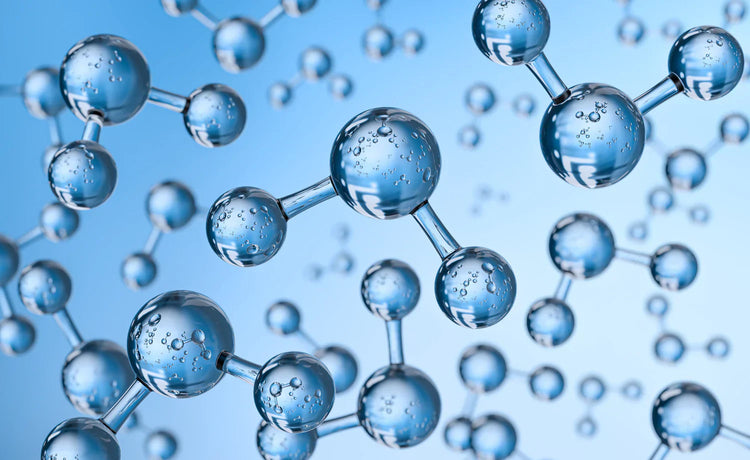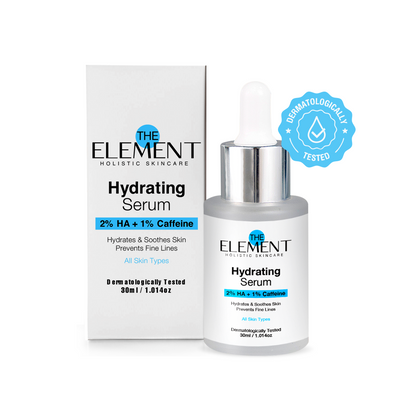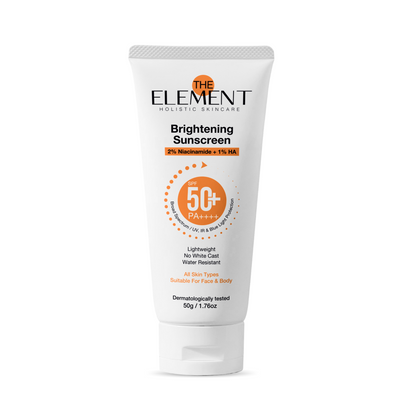Dermatologist's Guide to Hyaluronic Acid Sunscreen: Benefits, Uses, and Best Options for Every Skin Type

Introduction:
Sunscreen is a non-negotiable step in any skincare routine, but not all sunscreens are created equal. Enter hyaluronic acid sunscreen—a revolutionary product that combines sun protection with intense hydration. Whether you have dry, oily, or combination skin, hyaluronic acid sunscreen offers a lightweight, non-greasy solution that keeps your skin protected and moisturized. In this article, we’ll explore the benefits of hyaluronic acid sunscreen, its uses, and why it’s a must-have for every skin type. From SPF 50 formulations to aqua gel textures, we’ll cover everything you need to know to make an informed choice.
What Is Hyaluronic Acid Sunscreen?
Hyaluronic acid sunscreen is a dual-purpose skincare product that combines the hydrating properties of hyaluronic acid with the UV protection of sunscreen. Hyaluronic acid is a naturally occurring molecule in the skin that can hold up to 1,000 times its weight in water, making it a powerhouse for hydration. When paired with sunscreen, it not only shields your skin from harmful UV rays but also prevents dryness and dehydration caused by sun exposure.
Benefits of Hyaluronic Acid Sunscreen
1. Deep Hydration
Hyaluronic acid locks in moisture, ensuring your skin stays hydrated throughout the day. This is especially beneficial for those with dry or dehydrated skin, as traditional sunscreens can sometimes exacerbate dryness.
2. Lightweight and Non-Greasy
Unlike heavy, oily sunscreens, hyaluronic acid sunscreens are often formulated as gels or aqua gels, making them ideal for oily and combination skin types. They absorb quickly without leaving a sticky residue.
3. Enhanced Skin Barrier
By keeping the skin hydrated, hyaluronic acid strengthens the skin’s natural barrier, making it more resilient to environmental stressors like pollution and UV damage.
4. Anti-Aging Benefits
UV rays are a leading cause of premature aging. Hyaluronic acid sunscreen not only protects against sun damage but also plumps the skin, reducing the appearance of fine lines and wrinkles.
5. Suitable for All Skin Types
Whether you have dry, oily, sensitive, or acne-prone skin, hyaluronic acid sunscreen is gentle and effective, making it a versatile choice for everyone.
Hyaluronic Acid Sunscreen for Dry Skin
Dry skin often struggles with flakiness and tightness, especially after sun exposure. Hyaluronic acid sunscreen is a game-changer for dry skin because it provides:
- Intense hydration to combat dryness.
- A lightweight texture that doesn’t feel heavy or clog pores.
- Long-lasting moisture retention, even in harsh sunlight.
Dermatologist Dr. Sarah Johnson explains, “For individuals with dry skin, using a sunscreen with hyaluronic acid ensures that the skin remains hydrated while being protected from UV rays. It’s a win-win solution.”
Hyaluronic Acid Sunscreen for Oily Skin
Contrary to popular belief, oily skin also needs hydration. Hyaluronic acid sunscreen is perfect for oily skin because:
- It has a non-comedogenic formula that won’t clog pores.
- The gel-based texture absorbs quickly, leaving a matte finish.
- It balances the skin’s moisture levels, preventing overproduction of oil.
Look for products labeled as “oil-free” or “aqua gel” for the best results.
Hyaluronic Acid Sunscreen SPF 50: Why It’s a Must
SPF 50 provides broad-spectrum protection against both UVA and UVB rays, making it ideal for daily use. When combined with hyaluronic acid, SPF 50 sunscreens offer:
- Maximum sun protection for prolonged outdoor activities.
- Hydration and anti-aging benefits in one product.
- A lightweight feel, even with high SPF levels.
Hyaluronic Acid Sunscreen Gel vs. Aqua Gel
Both gel and aqua gel sunscreens are popular choices, but what’s the difference?
- Hyaluronic Acid Sunscreen Gel: Slightly thicker in texture, ideal for normal to dry skin.
- Hyaluronic Acid Sunscreen Aqua Gel: Ultra-lightweight and water-based, perfect for oily and combination skin.
Hyaluronic Acid Sunscreen Uses
Hyaluronic acid sunscreen isn’t just for your face—it can be used on any exposed skin, including your neck, arms, and hands. Here are some tips for effective use:
- Apply Generously: Use at least a nickel-sized amount for your face and more for other areas.
- Reapply Every 2 Hours: Especially if you’re sweating or swimming.
- Layer with Other Products: Apply after your moisturizer but before makeup.
Hyaluronic Acid Sunscreen for Which Skin Type?
Hyaluronic acid sunscreen is suitable for all skin types, but here’s a quick guide:
- Dry Skin: Opt for cream or gel-based formulas with added emollients.
- Oily Skin: Choose oil-free, aqua gel formulations for a matte finish.
- Sensitive Skin: Look for fragrance-free and hypoallergenic options.
- Combination Skin: A lightweight gel works well for balancing hydration.
Challenges of Hyaluronic Acid Sunscreen
While hyaluronic acid sunscreen offers numerous benefits, there are a few challenges to consider:
- Cost: Premium formulations can be more expensive than traditional sunscreens.
- Reapplication: Like all sunscreens, it needs to be reapplied every two hours for optimal protection.
- Compatibility: Some formulations may not layer well with certain makeup products.
The Future of Hyaluronic Acid Sunscreen
As skincare technology advances, we can expect even more innovative formulations of hyaluronic acid sunscreen. From hybrid products that combine sunscreen with antioxidants to eco-friendly packaging, the future looks bright for this skincare staple.
Conclusion
Hyaluronic acid sunscreen is a versatile, effective, and skin-friendly option for anyone looking to combine hydration with sun protection. Whether you have dry, oily, or sensitive skin, there’s a hyaluronic acid sunscreen out there for you. With options like SPF 50 and aqua gel formulations, you can enjoy lightweight, non-greasy protection that keeps your skin healthy and glowing.
Ready to upgrade your skincare routine? Explore the best hyaluronic acid sunscreens today and give your skin the care it deserves.
FAQs
1. What are the benefits of hyaluronic acid sunscreen?
Hyaluronic acid sunscreen provides hydration, UV protection, anti-aging benefits, and is suitable for all skin types.
2. Is hyaluronic acid sunscreen good for dry skin?
Yes, it’s excellent for dry skin as it locks in moisture and prevents dehydration caused by sun exposure.
3. Can oily skin use hyaluronic acid sunscreen?
Absolutely! Look for oil-free, aqua gel formulations for a lightweight, matte finish.
4. What is the difference between gel and aqua gel sunscreen?
Gel sunscreens are slightly thicker and better for dry skin, while aqua gel sunscreens are ultra-lightweight and ideal for oily skin.
5. How often should I reapply hyaluronic acid sunscreen?
Reapply every two hours, especially if you’re sweating or swimming.


